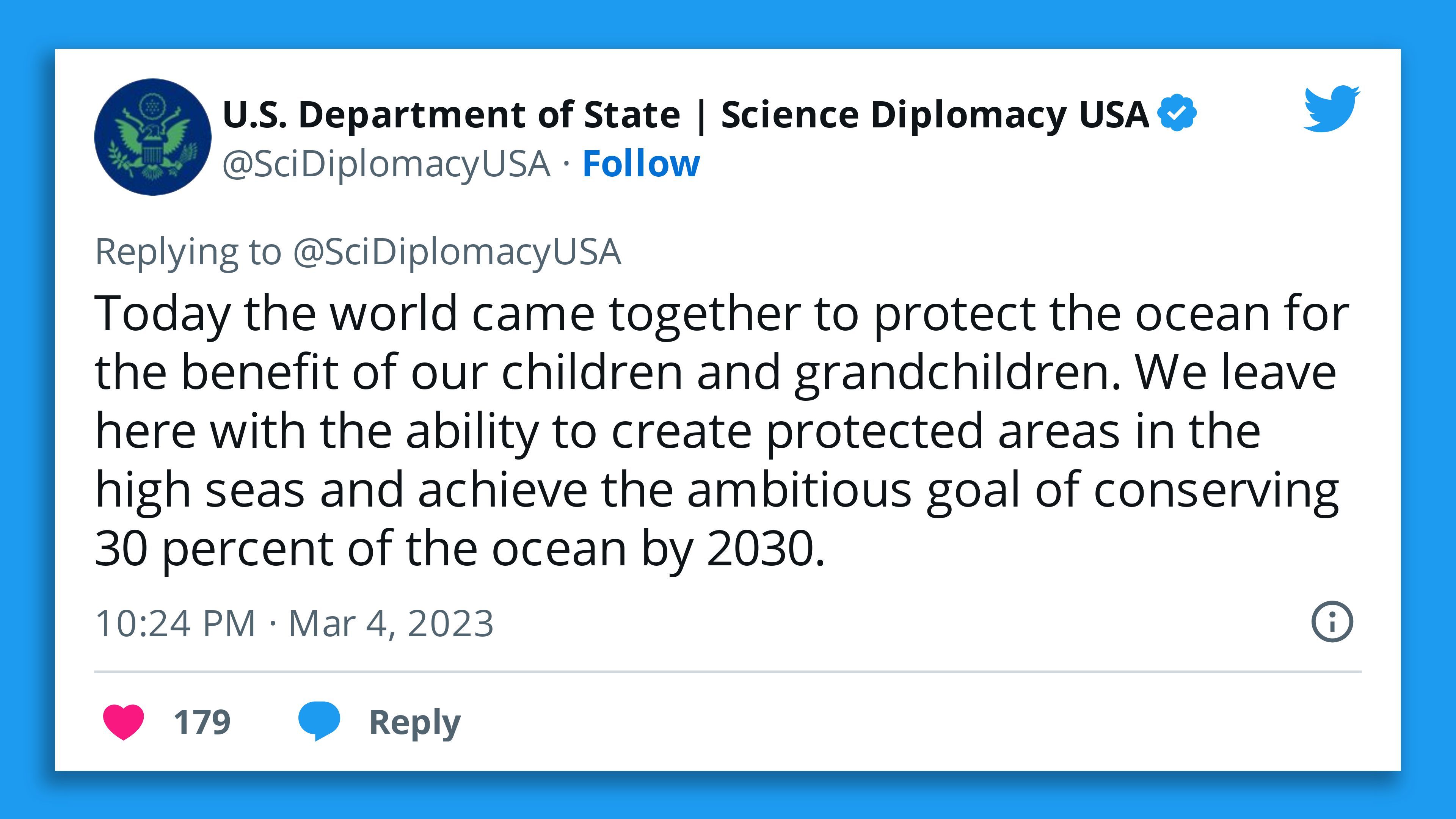Environmentalists have hailed a historic deal to protect oceans reached at the United Nations headquarters in New York City by over 190 countries over the weekend as "the biggest conservation agreement in the history of the world."
Why it matters: The High Seas Treaty moves to protect 30% of the world’s oceans by 2030 with the aim of halting and reversing the current extinction crisis, per Axios' Ben Geman.

- It's the first common framework agreement since countries adopted the UN Convention on the Law of the Sea in 1982.
The big picture: Countries agreed to the finalized text of the treaty on Saturday night after 38 hours of negotiations and nearly two decades of talks — which the BBC notes were marked by disputes about fishing rights and funding.
- The consensus followed a pledge by nations at the UN biodiversity conference in Montreal last December.
What they're saying: UN Secretary-General António Guterres welcomed the agreement as "an important step to protect our oceans" and a "victory for multilateralism."
- Gladys Martínez de Lemos, from nonprofit Interamerican Association for Environmental Defense, said in a statement the agreement "strengthens the legal protection of two-thirds of the ocean and with it marine biodiversity and the livelihoods of coastal communities."
- Greenpeace spokesperson Arlo Hemphill in a statement praised the "biggest conservation agreement in the history of the world" for providing a "pathway to establish marine sanctuaries so that countries can turn" their 30x30 Pledge into a reality.
- Georgetown marine biologist Rebecca Helm said there are really only "two major global commons — the atmosphere and the oceans," per AP.
- Helm added that oceans attracted less attention, but "protecting this half of earth’s surface is absolutely critical to the health of our planet."
What we're watching: The agreement is subject to the formal approval of countries.
- Liz Karan, from nonprofit Pews Trust, told the BBC the treaty would "take some time to take effect" as nations must "ratify it for it to enter force."
More from Axios:







